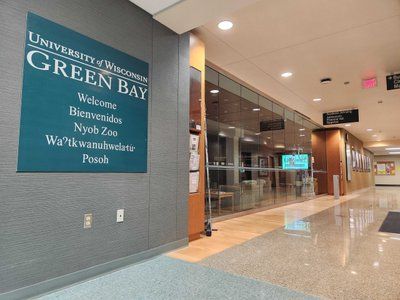By Tom Still
MADISON – By the time the annual Governor’s Business Plan Contest boils down to its final round after several months of judging and mentoring, some tough cuts have already produced a competitive crop of startup ideas.
This year’s contest, the 13th annual, is no exception. Twenty-seven young companies are just one step away from pitching their plans June 7 at the Wisconsin Entrepreneurs’ Conference in Madison, having survived two rounds of honing their business ideas.
What makes the finalists’ business plans special? For starters, each has identified a problem or inefficiency someplace in the marketplace and come up with a solution that can make money for them and any investors or partners they attract along the way.
Their plans often stand out, as well, because they reflect larger market or even societal trends – and because they have built a credible team. Entrepreneurism may start with one person’s idea, but it’s usually a team sport.
The plans also reflect the full economic make-up of Wisconsin, a state that is often viewed by outsiders as the Land of Milk, Cheese and Beer. In reality, Wisconsin offers more business and technology diversity than even its proud citizens might imagine.
Advanced manufacturing, agriculture and animal care, “cleantech” and water technology, health care and biotechnology and recreational products are all represented among the top 27, a group that will be narrowed to 12 presenters – “The Diligent Dozen” – in time for the annual Entrepreneurs’ Conference.
The contest is organized in four broad categories – advanced manufacturing, business services, information technology and life sciences – but those pockets are big enough to hold plans that could fit in other sectors. For example, most of the top plans in the business services category might just as easily fit into information technology, because it’s rare to find a business service that doesn’t employ software or a mobile application.
Software and business service plans include systems and applications to authenticate and standardize bioactive compounds in foods and supplements; analyze water utilities’ real-time information; tune homes to operate at ideal temperatures; connect farmers and veterinarians; collect actionable data about a farm’s feeding system; and remove compostable products.
Entries focused on social or educational innovations include platforms to support animal rescues, shelters and the volunteers; track weightlifting performance data; assist non-profit hospitals get children in their community more active; optimize writing processes to improve productivity and maintain brand integrity; broker live musical performances and instruction; vote and communicate with local government; and fundraise for K-12 schools.
Manufacturing ideas include technologies for onsite treatment of industrial wastewater; continuous measurement of aggregation of particles or droplets in a liquid or gas; intelligent water softener control to replace flow-based systems; non-invasive, breath technology which enables immediate bio-feedback for weight management and sports training; a disposable nozzle for two-part adhesives; a three-dimensional metal printer to enable high resolution manufacturing within a large build volume; an inflatable life jacket; and a smart lock box to secure medications in the home.
Health-related plans include antibody-based cancer detection products utilizing tumor blood vessel growth biomarkers; a robotic-computed tomography device for equine veterinarians; a bio-pesticide platform; antibodies to inhibit lung and pancreatic tumor growth and sensitize tumors to chemotherapy; a new process for collection, identification, tracking, preservation, and processing of biological samples; and an ex-vivo microfluidic assay able to rapidly analyze the therapeutic response tumor cells.
Some of those ideas may sound obscure, yet they all arose from spotting market holes. Innovation often creates markets where none previously existed.
Ten of the 27 ideas hail from Madison, which is Wisconsin’s tech startup hub, but 17 other finalist show tech-based business ideas are born in many communities across the state. The growth of Milwaukee’s water cluster is reflected in the finalist round; the rise of software solutions in traditional industries is represented in entries from Delavan, Elkhorn, Pittsville, Oshkosh, Pewaukee and beyond.
It’s also a young group, with at least a half-dozen finalists attending college or recently graduated.
The Wisconsin economy is not a one-trick pony, despite an enduring image otherwise. Today’s entrepreneurs are building a much more diverse foundation, which helps inoculate the state against cyclical ups and downs. The Land of Milk, Cheese and Beer? Of course. But we’re also becoming the Land of Microbes, Software and Water Tech.





